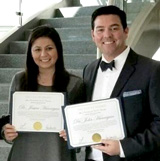Parent Mitchell Coats commented on Facebook, “My daughter views each journey and passage as a fun challenge and loves to beat Buckleboot as it sparks her competitive nature. She has also really enjoyed being able to customize her character.”
- Home
- Blog

Laurie Carmon is currently manager of new business development for Voyager Sopris Learning and has more than 25 years of experience supporting educators across the United States to successfully implement K–12 literacy and math intervention tools.
- Acadience
- Assessment


Andrea Samadi and David Adams explore the intersection of equity and SEL in the webinar A Culturally Responsive Approach to Social and Emotional Learning, with examples of how to directly develop and practice culturally responsive SEL during instruction in class, after school, in sports, and into the community.
- Cultural Awareness
- Diversity
- Equity
- Inclusion
- Inequality
- SEL
- Social-Emotional Literacy

You all know about Maslow’s Hierarchy of Needs, right? Do you know what this hierarchy was originally called? It was a new learning for me while listening to the recent webinar by Drs. Jessica and John Hannigan, SEL from a Distance: Building a Framework of Processes into your School/District to Guarantee Student Success.
- Remote Learning
- Science of Reading
- SEL
- Social-Emotional Literacy


Students need to understand the relationship between their emotions and behaviors and acquire the SEL tools needed to access their learning and life. This should without a doubt be a top priority and integrated in the fabric of any school in any setting.
- Positive Behavior Interventions and Supports
- Remote Learning
- Social-Emotional Literacy

In October 2020, the Science of Reading—What I Should Have Learned in College Facebook group reached 50,000 members and continues to grow at a rate of about 1,000 members per week. Many, if not most of these new members, are new to the science of reading. Our mission is to continue to share with the membership opportunities to learn how the science can be implemented at home or in their classrooms.
- Science of Reading
- Teacher Preparedness
Never Miss an Episode
Add your email here to sign up for EDVIEW 360 blogs, webinars, and podcasts. We'll send you an email when new posts and episodes are published.

